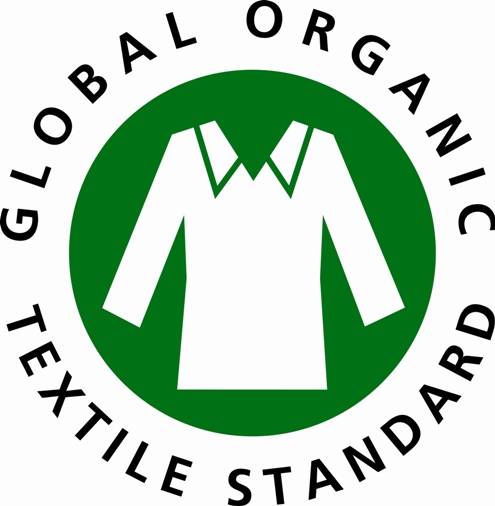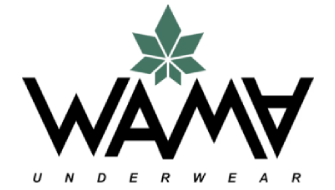
What Does It Mean to be GOTS Certified?
|
If you're not happy with your first pair of underwear after trying it on, let us know.
We'll send a new size or color, or give you a refund. No returns needed.

WAMA Underwear
|
The Global Organic Textile Standard, or better known as GOTS, is the worldwide leader on setting the textile processing standard for organic fibers including ecological and social criteria, backed up by independent certification of the entire textile supply chain.
The aim of the standard is to define globally recognized requirements that ensure the organic status of textiles, from the harvesting of raw materials, through environmentally and socially responsible manufacturing all the way to labelling, in order to provide a credible assurance to the end consumer.
Textile processors and manufacturers are enabled to export their organic fabrics and garments with one universal certification accepted in all major markets.
The consensus of the Founding Organizations was that a clear and unambiguous understanding of the content required that the Global Standard itself focuses on compulsory criteria only.
The standard covers the processing, manufacturing, packaging, labelling, trading and distribution of all textiles made from at least 70% certified organic natural fibres.
The final products may include, but are not limited to fibre products, yarns, fabrics, clothes and home textiles. The standard does not set criteria for leather products.
Organic certification of fibres on basis of recognised international or national standards (IFOAM family of standards, EEC 834/2007, USDA NOP)
Certification of fibres from conversion period is possible if the applicable farming standard permits such certification
A textile product carrying the GOTS label grade ‘organic’ must contain a minimum of 95% certified organic fibres whereas a product with the label grade ‘made with organic’ must contain a minimum of 70% certified organic fibres
The Key Criteria for Processing and Manufacturing:
At all stages through the processing organic fibre products must be separated from conventional fibre products and must to be clearly identified
All chemical inputs (e.g. dyes, auxiliaries and process chemicals) must be evaluated and meeting basic requirements on toxicity and biodegradability/eliminability
Prohibition of critical inputs such as toxic heavy metals, formaldehyde, aromatic solvents, functional nano particles, genetically modified organisms (GMO) and their enzymes
The use of synthetic sizing agents is restricted; knitting and weaving oils must not contain heavy metals
Bleaches must be based on oxygen (no chlorine bleaching)
Azo dyes that release carcinogenic amine compounds are prohibited
Discharge printing methods using aromatic solvents and plastisol printing methods using phthalates and PVC are prohibited
Restrictions for accessories (e.g. no PVC, nickel or chrome permitted)
All operators must have an environmental policy including target goals and procedures to minimise waste and discharges
Wet processing units must keep full records of the use of chemicals, energy, water consumption and waste water treatment, including the disposal of sludge. The waste water from all wet processing units must be treated in a functional waste water treatment plant.
Packaging material must not contain PVC. Paper or cardboard used in packaging material, hang tags, swing tags etc. must be recycled or certified according to FSC or PEFC
The Key Criteria for Human Toxicity and Technical Quality:
Technical quality parameters must be met (s.a. rubbing, perspiration, light and washing fastness and shrinkage values)
Raw materials, intermediates, final textile products as well as accessories must meet stringent limits regarding unwanted residues
The Social Criteria:
Social criteria based on the key norms of the International Labour Organisation (ILO) must be met by all processors and manufacturers. They must have a social compliance management with defined elements in place to ensure that the social criteria can be met. For the listed applicable key conventions of the International Labour Organization (ILO), adequate implementation and assesment of the social criteria topics have to be taken as the relevant basis for interpretation.
Employment is freely chosen
C29 - Forced Labour Convention
C105 - Abolition of Forced Labour Convention
Freedom of association and the right to collective bargaining are respected
C87 - Freedom of Association and Protection of the Right to Organise Convention
C98 - Right to Organise and Collective Bargaining Convention
C135 - Workers' Representatives Convention
C154 - Collective Bargaining Convention
Working conditions are safe and hygienic
C155 - Occupational Safety and Health Convention
Child labour must not be used
C138 - Minimum Age Convention
C182 - Worst Forms of Child Labour Convention
Living wages
C95 - Protection of Wages Convention
C131 - Minimum Wage Fixing Convention
Working hours are not excessive
C1 - Hours of Work (Industry) Convention
C14 - Weekly Rest (Industry) Convention
C30 - Hours of Work (Commerce and Offices) Convention
C106 - Weekly Rest (Commerce and Offices) Convention
No discrimination is practised
C100 - Equal Remuneration Convention
C111 - Discrimination (Employment and Occupation) Convention
Regular employment is provided
C158: Termination of Employment Convention
C175: Part-time Work Convention
C177: Homework Convention
C181 Private Employment Agencies Convention
Harsh or inhumane treatment is prohibited
C29 - Forced Labour Convention
C105 - Abolition of Forced Labour Convention
Generally a company participating in the GOTS certification scheme must work in compliance with all criteria of the standard. GOTS relies on a dual system to check compliance with the relevant criteria consisting of on-site auditing and residue testing.
Fibre producers (farmers) must be certified according to a recognised international or national organic farming standard that is accepted in the country where the final product will be sold Certifiers of fibre producers must be internationally recognised through ISO 65/17065, NOP and/or IFOAM accreditation. They also must be accredited to certify according to the applicable fibre standard Operators from post-harvest handling up to garment making and traders have to undergo an onsite annual inspection cycle and must hold a valid GOTS scope certificate applicable for the production / trade of the textiles to be certified.
Certifiers of processors, manufacturers and traders must be internationally accredited according to ISO 65/17065 and must hold a ‘GOTS accreditation’ in accordance with the rules as defined in the ‘Approval Procedure and Requirements for Certification Bodies’
Residue Testing:
Stringent limit values for unwanted residues are defined in the standard
Licensed operators must undergo residue testing according to a risk assessment of contamination
Additional samples may be taken by auditors and sent for analysis to ISO 17025 accredited labs
For starters, if a product or textile claims to be GOTS Certified, it means that they are using a minimum of 95% organic fibres. If it is labeled with “made with organic” it contains a minimum of 70% certified organic fibres.
In short, to be granted the GOTS certification the product or material needs to be produced with fair labor, dyes need to be biodegradable and free of harsh chemicals, must meet high standards for residue testing and must be processed separately from conventionally grown fibers.
In all, GOTS Certification is the #1 most important certification worldwide for any product or textile ensuring the organic status of the product or material. When shopping sustainably for organic products be sure to only buy products with the GOTS Certification label next to it.
Want to learn more? Get in Contact with US :)
Get updates on restocks, new color and size releases, and upcoming product launches. You’ll also get a 15% discount on your first order of hemp underwear.


